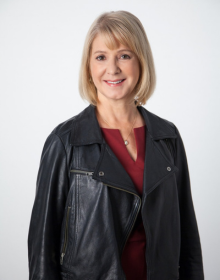
SCC 2025 is sold out! Registration is now closed.
FCM's Sustainable Communities Conference (SCC) 2025 and trade show are officially sold out and registration is now closed. Subscribe to our Connect newsletter to stay connected and learn about future learning opportunities. Thank you for your interest in #SCC2025.
The Sustainable Communities Conference (SCC) 2025 will feature a variety of panelists and keynote speakers to share their expertise and experiences with local sustainability. From subject matter experts to local leaders, journalists and academics, explore the list of speakers below and discover where to find them at SCC 2025.
All events and session times are displayed in Atlantic Time (AT).
Schedule is subject to change without notice.
Laura Lynch, keynote speakerAward-winning journalist and host of CBC’s What On Earth Keynote address on Thursday, February 13 at 12:30 p.m. – 1:30 p.m. In the course of her career, Laura has reported from across Canada and around the world. In the 1990’s she covered the Supreme Court of Canada as it broke new ground with precedent setting Charter of Rights rulings. Laura also covered Parliament Hill, covering everything from gun control to abortion to international trade. After many years abroad, Laura is back where she started in Vancouver using her years of experience to tell Canadians what they need to know about climate change, it's challenges and solutions. Over the years, Laura has won the prestigious Nieman fellowship from Harvard University, awards from the British Bar Association, the Canadian Bar Association, RTNDA (Canada and U.S. ), Overseas Press Club of America, Amnesty International, RNAO and the Gabriel awards. Laura has a law degree from the University of Victoria and a journalism degree from Carleton University. | 
|
Tanya Talaga, keynote speakerAward-winning journalist and author, Seven Fallen Feathers Keynote address on Tuesday, February 11 at 2:00 p.m. - 2:45 p.m. Tanya is of Indigenous and Polish descent. She is a member of Fort William First Nation and her mother was raised on the traditional territory of Robinson Superior Treaty area and in Treaty 9. For more than 20 years, Tanya was a journalist at the Toronto Star. She is now a regular columnist at the Globe and Mail. In 2021, Tanya was part of the Globe team that won the Michener Award in public service journalism for reporting on the Catholic Church's efforts to avoid responsibility regarding Indian Residential Schools, and the pursuit of an apology from Pope Francis. Tanya is the author of three national bestsellers. Her first book, Seven Fallen Feathers, won the 2018 RBC Taylor Prize, the Shaughnessy Cohen Prize for Political Writing and the First Nation Communities Read Award: Young Adult/Adult. Tanya also founded the production company, Makwa Creative Inc. and is the executive producer of the podcast, Auntie Up!, made for Indigenous women by Indigenous women. Talaga holds four honorary doctorates. She was the 2017/2018 Atkinson Fellow in Public Policy and, in 2018, was the first Anishinaabe woman to be the CBC Massey Lecturer. | 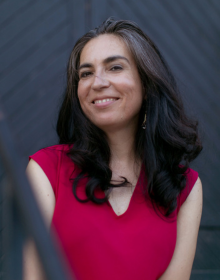
|
Alan De SousaMayor of Saint-Laurent, Quebec Co-chair, SCC 2025 Mayor DeSousa is serving his sixth term as the Mayor of Saint-Laurent, QC, and has served on the City of Montreal's executive committee for over 11 years. He also served on the Montreal Metropolitan Community (MMC) council from 2002 to 2017 and was a member of the MMC executive committee for eight years. In 2022, he was named Chair of the Green Municipal Fund Council. Mayor DeSousa is the architect of Montreal's sustainable development and environmental policies, taking them from planning to implementation. Under his leadership, Saint-Laurent became sustainable municipal territory in 2019 and became the same year the first Québec municipal entity with over 100,000 residents to complete the final phase of the Partners for Climate Protection (PCP) program. | 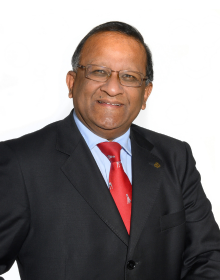
|
Gabrielle BlatzCouncillor, City of Wetaskiwin, Alberta | 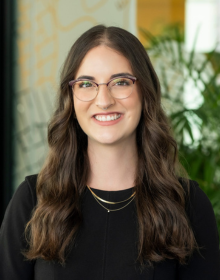
|
Carole SaabChief Executive Officer, Federation of Canadian Municipalities Carole is the CEO of Canada’s national municipal association, the Federation of Canadian Municipalities (FCM), representing more than 2,100 member municipalities. FCM is home to the Big City Mayors’ Caucus and administers a suite of national and international programs. This includes the thriving Green Municipal Fund, which manages approximately $2.4 billion in programs that provide funding, resources and tools to help communities bring sustainability projects to life across Canada. Carole is a tireless champion for cities and communities, driving an ambitious vision for local government leadership in building a more sustainable, prosperous and inclusive Canada. An accomplished strategist with over a decade of experience in federal and municipal advocacy, Carole has been a driving force behind watershed achievements for municipalities, securing unprecedented investment and progress for cities and communities. Carole’s leadership has positioned FCM as one of the most respected and effective advocacy organizations in Canada. | 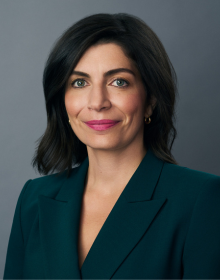
|
Abhi KantamneniDirector, Action Research, Efficiency Canada Panel: No one left behind – Collaborative climate solutions for inclusive action Abhilash Kantamneni (Abhi) is the Director of Action Research at Efficiency Canada, specializing in energy poverty and home trades business practices. His community-driven research has helped communities across the U.S. and Canada use energy efficiency to reduce poverty, create ‘good jobs’ and improve housing. His public speaking and capacity-building work has earned wide recognition, including being named a Canada Storyteller by the Social Sciences and Humanities Research Council and 'Energy Leader' by Midwest Energy News. Abhi holds a B.S. in Electrical Engineering from Anna University, a Masters in Physics and a Masters in Computer Science from Michigan Tech. | 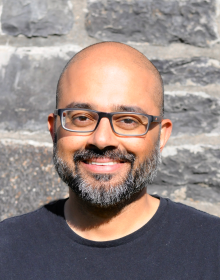
|
Anik Des MaraisMunicipal Councillor, Ville de Gatineau, Quebec Panel: Risk and resilience Since 2021, Anik Des Marais has been putting her local and international experience at the service of residents of Gatineau as a municipal councillor for the Mitigomijokan district. As Chair of the Finance Committee and Vice-Chair of the Environment and Climate Change Committee, she works to strengthen Gatineau’s resilience to environmental challenges and improve fiscal tools available to municipalities. She promotes concrete and innovative solutions to diversify revenues, adopt environmentally friendly practices and stimulate citizens’ participation in the city’s decision- making process. Before devoting herself to municipal politics, Anik Des Marais pursued a career in economic development and international trade within the federal government. At Global Affairs Canada, she was responsible for major international projects related to social and economic development issues, including access to education in Morocco, women’s financial autonomy in Haiti, local development in Peru and sound public management in Kenya. She also supported Canadian companies in their international expansion as Deputy Director of the CanExport program. | 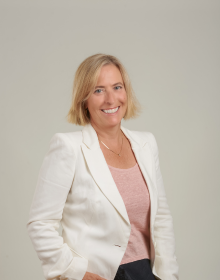
|
Brett (Hetxw'msGyetxw) HusonFounder and President of Aluu'taa Panel: No one left behind – Collaborative climate solutions for inclusive action Hetxw’ms Gyetxw, also known as Brett D. Huson (he/him/his), is a proud member of the Gitxsan Nation from the Northwest Interior of British Columbia, Canada. He is the Founder and President of Aluu’taa, an Indigenous research and research support hub. A multi-award-winning author, Brett’s “Mothers of Xsan” series provides a profound insight into Gitxsan culture and knowledge. Beyond his literary achievements, he serves as a research associate at the Prairie Climate Centre, significantly contributing to integrating Indigenous Knowledges into the Climate Atlas. Brett is an advisor to the Federation of Canadian Municipalities and the Public Infrastructure Engineering Vulnerability Committee and is a contributing writer to Canadian Geographic. He actively engages in governance and advocacy, serving as a volunteer chair for the sakihiwe Music Festival Board and a member of the Steering Committee for Adaptation Futures. Brett’s work, deeply rooted in his Gitxsan heritage, is dedicated to bridging Indigenous knowledge systems with Western research and promoting cultural resilience. With the unwavering support of his wife, Jeri, and their children, Warren and Ruby, Brett is deeply committed to preserving and transmitting Indigenous knowledge across generations, ensuring its legacy for the future. | 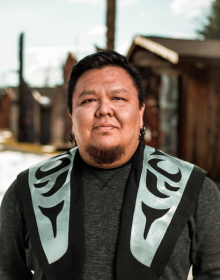
|
Chris BoivinChief Development Officer, FCM & Managing Director, Green Municipal Fund Sustainable Community Awards ceremony Chris Boivin is the Chief Development Officer for the FCM and the Managing Director of the Green Municipal Fund (GMF). In these roles, Chris oversees the development and delivery of FCM’s programs focused on sustainability and social inclusion. He oversees a diverse and multi-disciplinary team that develops solutions to help make communities of all sizes more sustainable and resourced to better serve Canadians of all walks of life. As the Managing Director of the FCM’s flagship GMF, Chris is responsible for executing the vision for the $2.4 billion Government of Canada investment in support of municipal projects that advance innovative solutions to environmental challenges. A focus of this work is helping communities across Canada achieve net-zero emissions and climate resilience faster. Since taking over the role in 2017, the GMF team has grown the fund and its reach more than four-fold. Chris previously held senior roles at Sustainable Development Technology Canada. He has worked on climate change for over 20 years and has led over $1.5 billion in public investments in climate change projects in pursuit of Canadian emissions reductions goals. He is passionate about making a difference in all he takes on. He is equally passionate about building and enabling people and teams to do the same. | 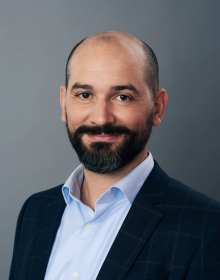
|
Joanna EyquemManaging Director, Climate-Resilient Infrastructure, Intact Centre on Climate Adaptation Panel: Risk and resilience Joanna Eyquem is an internationally-recognized leader in climate adaptation and nature-based solutions, with 25 years experience in Europe, North America and Western Africa. Her work at the Intact Centre focuses on reducing flooding, erosion and heat risk, in particular working with nature and the financial sector. Joanna serves on over 30 boards and committees, including for the National Research Council of Canada, the Government of Quebec’s Expert Group on Adaptation, and as Chair of the Board for the Natural Assets Initiative. Previously, Joanna was the Global Technical Practice Lead for Climate Resilience at AECOM. She is professionally qualified in both Canada and the UK, bilingual and typically featured in over 150 media features a year (in English and French). | 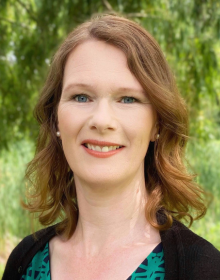
|
Louise ComeauSenior Advisor, Re.Climate Panel: A new era of climate action – Economic opportunity, job creation and cost savings at the forefront of action Louise holds a doctorate in environmental management, focused on environmental ethics and behaviour change. She has received three Queen’s citizenship medals for her work in international climate negotiations, creation of the Green Municipal Fund at the Federation of Canadian Municipalities and advancing climate action in New Brunswick. She is a member of Canada’s Net Zero Advisory Body. | 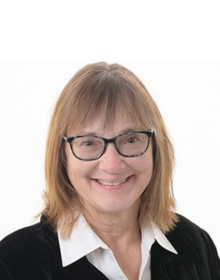
|
Marieke CloutierSenior Director, Programs, Green Municipal Fund Panel: Risk and resilience Marieke Cloutier provides strategic leadership to maximize GMF’s ability to accelerate the transformation of Canadian municipalities towards creating net zero, resilient, sustainable communities by fostering equity informed climate action. She passionately executes, with her awesome team, her mandate to oversee the design, implementation, performance and evolution of existing and future GMF programs. Environment, ecological transition and innovative solutions have always been pillars of Marieke's career. For more than 20 years, Marieke has been a strategic leader in large organizations in terms of climate change, urban resilience, partnerships, mobilization and behaviour change. Marieke has worked with all levels of government as well as with the private sector, non-governmental organizations and international organizations such as the Organisation of Economic Co-operation Development (OECD). In 2002, she decided to dedicate herself to the municipal government level (Union of Municipalities of Quebec, City of Longueuil). Prior to joining GMF, Marieke spent almost 10 years at the City of Montreal, where she headed multiple departments focused on adaptation and emissions reductions, biodiversity protection, environmental regulations and monitoring. Marieke was one of the main architects behind the elaboration and implementation of Montreal’s Climate Plan 2020-2030. She grew up in the Outaouais region and lives in Montreal with her family. | 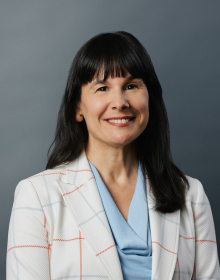
|
Mani RajendranSenior Project Manager, the Regional Municipality of Durham Panel: No one left behind – Collaborative climate solutions for inclusive action Mani is a Senior Project Manager in the Transportation Design Division of the Works Department in the Region of Durham. Mani manages the region’s transportation projects and leads the division on strategic initiatives, including the Transportation Climate Change Resilience Plan and Sustainable Transportation Infrastructure Implementation Policy and Guidelines (Envision Framework, ISI). Mani holds a double master’s in Transportation Planning and Urban Engineering and a mini-MBA in Business Management. As the lead for the Transportation Community Climate Change Resilience program, Mani has led and completed a systems-level flood risk assessment within Durham’s major conservation area watersheds for present and future climate scenarios. Mani previously led the Regional Public Works Commissioners of Ontario’s Climate Change Subcommittee to complete a “Climate Resilience Roadmap for Ontario Municipal Infrastructure and Systems”. He is currently chairing the American Public Works’ Sustainable Transportation Subcommittee. | 
|
Megan LesliePresident and CEO, World Wildlife Fund-Canada Panel: Risk and resilience Megan Leslie is President & CEO of World Wildlife Fund-Canada. Since taking on this role, Megan has led WWF-Canada’s bold 10-year plan Regenerate Canada, to expand habitats, reduce carbon in the atmosphere, lower industrial impacts and, as a result, reverse wildlife loss and fight climate change. She is also passionate about engaging Canadians to take action for nature. Before joining WWF, Megan was a Member of Parliament representing Halifax for two terms during which she was deputy leader of the Official Opposition, environment critic and vice-chair of the government committee on environment and sustainable development. As a Parliamentarian Megan introduced a motion to ban plastic microbeads which led to a ban on the Canadian manufacture, sale and importation of these products. She also expedited the creation of Sable Island National Park Reserve. Megan is the proud recipient of an Honourary Degree from Mount Saint Vincent University in Halifax and a board member with ArcticNet. | 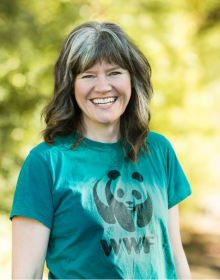
|
Sheila MurrayProject Director, Community Resilience to Extreme Weather (CREW) Panel: No one left behind – Collaborative climate solutions for inclusive action Sheila Murray is a co-founder and lead of the Toronto based, volunteer driven Community Resilience to Extreme Weather (CREW), an award-winning initiative on the MakeWay shared platform. CREW has explored the ways in which community resilience to climate impacts is developed at the grassroots level since 2014. It inspires, enables and supports community-led networking that increases awareness of local climate change impacts and promotes local resiliencies, especially for the more vulnerable. Sheila served as an expert stakeholder in the 2019 development of Toronto’s Resilience Strategy. Sheila’s 2009 - 2013 research, communications and community engagement for the Omega Foundation’s project, SmartSaver, contributed to the participation of thousands of families and created successful partnerships and networks across Canada. This project helped modest-income families establish education savings, making their children more likely to apply for, and to attend, post-secondary education. Sheila is also a writer, who's acclaimed 2022 novel, Finding Edward, included themes of anti-Black racism and Black Canadian history. Her background is in film production, sound editing and documentary filmmaking. She has a BA in Journalism and an MA in Immigration and Settlement Studies, both from Metropolitan Toronto University. | 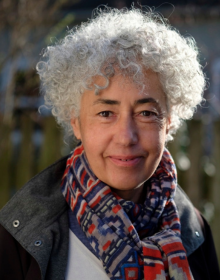
|
Skylar FrankeCouncillor, Ward 11, City of London, Ontario Panel: A new era of climate action – Economic opportunity, job creation and cost savings at the forefront of action Skylar Franke is currently serving her first term as Councillor for Ward 11. She can most often be found right in the thick of conversations about the community, environment and politics in this city. She lives in the Coves neighbourhood and subwatershed in Ward 11. Prior to becoming a City Councillor, she worked in London’s environmental sector for over eight years and supported a wide variety of environmental projects in the city. She was previously the Executive Director at the London Environmental Network, which offered corporate and residential sustainability programs as well as managed green infrastructure projects like rain gardens and Depave Paradise events. She also worked for ReForest London running residential tree planting programs. She graduated in 2013 from King’s University College at Western University with an honours B.A. in Social Justice and Peace Studies and French Studies. | 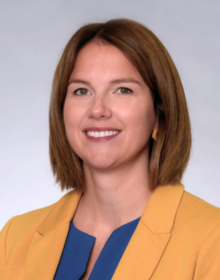
|
Ursula EickerPhD, Canada Excellence Research Chair (CERC) in Smart, Sustainable and Resilient Cities and Communities, Concordia University, Montreal Panel: A new era of climate action – Economic opportunity, job creation and cost savings at the forefront of action Ursula Eicker is the Canada Excellence Research Chair (CERC) in Smart, Sustainable and Resilient Communities and Cities and Founder and Director of the Next-Generation Cities Institute at Concordia University in Montréal. She works on decarbonization strategies for cities using living labs and urban digital twins for scenario modeling, user engagement and operational optimization. Her research interests cover zero emission and smart cities, renewable energy integration and sustainable urban infrastructure. With a team of about 50 graduate students and software developers she is working on multiple eco-district projects in Canada and builds the urban modeling and data analytics platform Tools4Cities. To engage users, 3D city models can be accessed via web interfaces or immersive gamification tools. Prof. Eicker has published eight books, 20 book contributions, over 140 Peer-Reviewed Papers and more than 340 Conference Papers. | 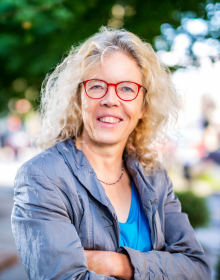
|
Have questions about SCC 2025?
We'd love to hear from you. If you have any questions about SCC 2025, please send us an email and we'll get back to you as soon as we can.
Related
SCC 2025: Plan your trip
Everything you need to know to book your travel for FCM’s Sustainable Communities Conference.
Read more
